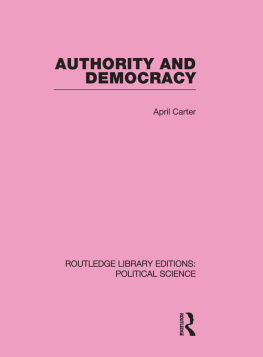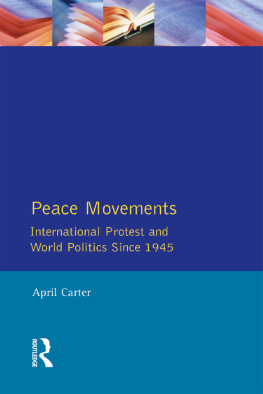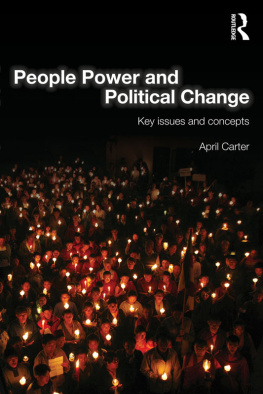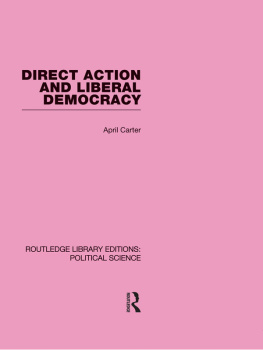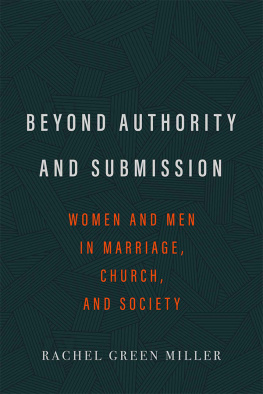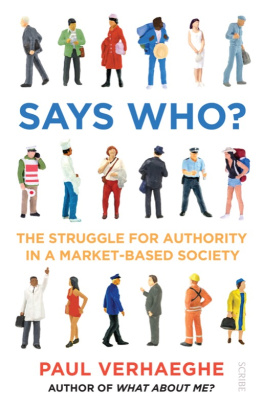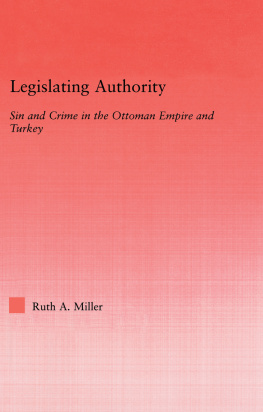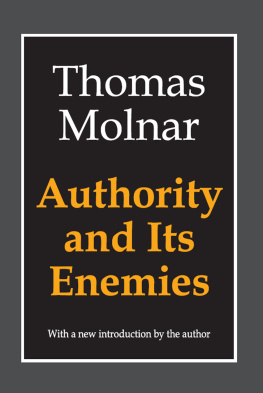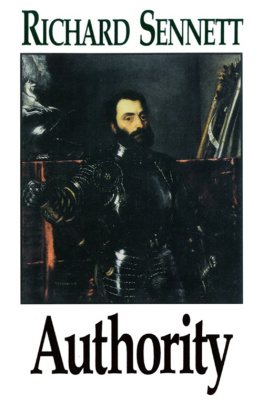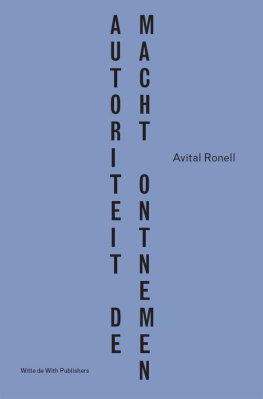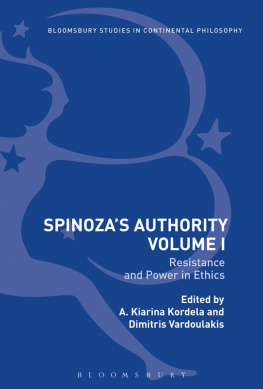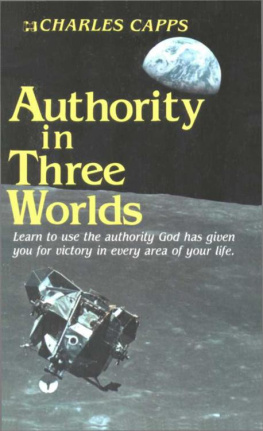First published 1979
This edition first published in 2010
by Routledge
2 Park Square, Milton Park, Abingdon, Oxon, OX14 4RN
Simultaneously published in the USA and Canada
by Routledge
270 Madison Avenue, New York, NY 10016
Routledge is an imprint of the Taylor & Francis Group, an informa business
1979 April Carter
All rights reserved. No part of this book may be reprinted or reproduced or utilised in any form or by any electronic, mechanical, or other means, now known or hereafter invented, including photocopying and recording, or in any information storage or retrieval system, without permission in writing from the publishers.
British Library Cataloguing in Publication Data A catalogue record for this book is available from the British Library
ISBN 10: 0-415-49111-8 (Set)
ISBN 13: 978-0-415-49111-2 (Set)
ISBN 10: 0-415-55535-3 (Volume 5)
ISBN 13: 978-0-415-55535-7 (Volume 5)
Publishers Note
The publisher has gone to great lengths to ensure the quality of this reprint but points out that some imperfections in the original copies may be apparent.
Disclaimer
The publisher has made every effort to trace copyright holders and would welcome correspondence from those they have been unable to trace.
Authority and Democracy
April Carter
Somerville College, Oxford
First published in 1979
by Routledge & Kegan Paul Ltd
39 Store Street,
London WC1E 7DD,
Broadway House,
Newtown Road,
Henley-on-Thames,
Oxon RG9 lEN and 9 Park Street,
Boston, Mass. 02108, USA
Trowbridge and Esher
April Carter 1979
No part of this book may be reproduced in any form without permission from the publisher, except for the quotation of brief passages in criticism.
British Library Cataloguing in Publication Data
Carter, April
Authority and democracy
1 Authority
I Title
301.592 JC571 7840862
ISBNO 7100 00901
Introduction
Authority is a concept central to social and political thought, and yet its precise nature remains remarkably elusive. There are a number of reasons for this elusiveness. One is the ambiguity and complexity of the uses of the word in ordinary speech, indicated, for example, by the very different connotations attached to the two adjectives associated with authority: authoritative and authoritarian. A second source of ambiguity is the fact that we apply the concept of authority to a number of very different spheres of social activity: to the sphere of knowledge as well as the sphere of politics; to relations in the family and school as well as the factory or army; and both in novels and everyday life we recognize the authority of a strong personality. Whether we regard all these forms of authority as different manifestations of one quintessential type of social relationship which we call authority, or whether we believe that political authority is different in kind from authority in, for example, education depends in part on our broader understanding of politics and society.
One of the most fundamental disagreements between theorists of authority is whether authority, like religious faith and tradition, was part of a world we have now almost wholly lost, leaving the contemporary world with a crisis of authority; or whether authority has changed its accoutrements but still exists in modern form in modern industrialized and rationalist society. Sociologists and political theorists who espouse the first view turn their gaze to the aristocratic order of Europe prior to the French Revolution, when social life was governed primarily by deference to hierarchy, by custom and by unreflecting prejudice. Robert Nisbet elaborates on the picture of this society delineated by nineteenth-century social theorists in his book The Sociological Tradition. The most celebrated exponent of the second point of view is Max Weber, who accepted the importance of tradition as a source of authority but looked for an alternative type of authority, and alternative grounds for it, in the modern bureaucratic state in an increasingly rationalist world.
Interpretations of authority necessarily vary with the political philosophy of the writer. A preliminary distinction can be made between conservative theorists, who have always tended to uphold existing forms of authority and to maintain the necessity of authority for social stability and the preservation of a civilized mode of life; and liberal, socialist and anarchist theorists, who view authority with varying degrees of distrust. Liberal rationalists see authority usurping the individual right to autonomous thought and decision, socialists see authority as an ideological gloss on the injustice of class rule, and anarchists usually see all forms of authority as a source of social corruption. Radicals in general have associated authority with authoritarian control which minimizes personal freedom: the fact that our predominant image of authority comes from the hierarchy of a traditional and aristocratic type of society reinforces the reactionary connotations of the idea of authority.
There are good reasons to suspect the exercise of authority in the contemporary world. If authority is defined, as it often is, as a relationship in which those in authority can evoke automatic and unthinking obedience, then there have been numerous occasions when the plea of obedience to orders has been used to justify the most terrible crimes. A recent well-known psychological experiment, described by Stanley Milgram in a book entitled Obedience to Authority, demonstrated how an alarming number of participants in the experiment obeyed orders to give electric shocks to individuals, even when they believed that these shocks were causing great pain and could be lethal. There are also good reasons to suspect the calls for the reassertion of authority which are evoked by fears of widespread political revolt, of increasing crime statistics and of the breakdown of accepted morality among the young. Calls for more authority, whether in the home, the school, the university, the factory or the state, usually disguise the desire to enforce obedience and to impose stern discipline in order to stop permissiveness and anarchy undermining the social order.
There is, however, a serious conservative case for authority which is far removed from a crude recourse to authoritarianism, and which emphasizes the role of authority in upholding not only moral and intellectual standards but also in guaranteeing social and political freedom, and acting as a barrier to centralized, arbitrary and despotic power. This case is argued in three recent contributions to political theory Hannah Arends essay on Authority in her book Between Past and Future, Carl Friedrichs study of Tradition and Authority and Robert Nisbes reflections on The Twilight of Authority although each elaborates a slightly different conception of authority. All three writers are in some sense conservative, though this label obscures as much as it illuminates. If all are hostile to radical egalitarianism and to the Marxist tradition, each has sympathy with aspects of progressivism: Arendts belief that true politics is exemplified in direct democracy and heroic action makes her responsive to certain styles of revolutionary politics; Friedrich has a liberal faith in reason; and Nisbet is sympathetic to the pluralist version of anarchism propounded by Proudhon and Kropotkin. All pose a challenge to radicals prepared to dismiss the question of authority as irrelevant.

